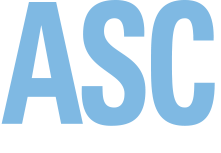Wisconsin Water Library
Books and So Much More
Established in 1964 by the University of Wisconsin Water Resources Institute (WRI), the Wisconsin Water Library (formerly known as the Water Resources Library) focuses on the water resources of Wisconsin and the Great Lakes and houses more than 35,000 volumes. The library’s mission is to collect, preserve and provide science-based resources and programs in support of Wisconsin Sea Grant (WSG) and its sister institute, the Water Resources Institute (WRI).
Yesterday
In its early days, the library collection included technical reports, government documents, water science textbooks, maps and reference tools in print only. It was used primarily by faculty, staff and students at the University of Wisconsin-Madison in a traditional library model. Access to journals and gray literature was limited and publications could be difficult to find. The library had a key role, however, in preserving the deep commitment to water science scholarship in Wisconsin by collecting the research findings of scientists funded by the WRI as well as other key water-related agencies such as the U.S. Geological Survey. This collection of print materials includes gray literature and many unique titles that were at risk of getting lost.
Since 1999, with the merger of the WRI and WSG, the library has held the unofficial title of “The Water Library for Wisconsin,” opening its collection and providing programs to all residents of Wisconsin. The library was one of the first on the UW-Madison campus to lend its collection to the public, to freely answer reference and research questions across its many patron groups, and to provide education and outreach programming to audiences in learning environments such as public libraries and Head Start programs. Senior Special Librarian and Education Coordinator Anne Moser has focused on the youngest learners, ages 3 through 12, bringing a multidisciplinary approach to Great Lakes and water science literacy.
The library’s collection has also grown in recent years and reflects the changing challenges facing the Great Lakes, with titles on climate change, Traditional Ecological Knowledge, coastal engineering and social sciences. In the past few years, the library has paid special attention to the lack of diversity in its collections and has continued to expand the number of titles by Native authors and authors in marginalized and underrepresented groups. It has also focused efforts in finding and collecting titles on environmental justice and environmental racism. To support Moser’s work with young learners, the library has grown its collection of children’s books on a variety of subjects as well as updated educational kits and story hour lesson plans.
In recent years, the library has also expanded its digital collections about the Great Lakes and Wisconsin water resources. It’s easy to think “everything can be found in Google,” but without curation and indexing, everything cannot be found in Google. Two projects of special note are digitizing the WRI groundwater repository and creating a digital collection of the oral history recordings about lake sturgeon conservation. The groundwater repository contains close to 500 project reports that reflect the investment in groundwater research since 1985. By digitizing and cataloging the full run of research findings, a full picture of the health of our groundwater resources emerges and is discoverable for generations to come. The second digital collection focused on the conservation story of lake sturgeon in Lake Winnebago and includes sixty-nine oral history recordings of the voices behind the science, culture, history and art of this beloved dinosaur fish. digital.library.wisc.edu/1711.dl/SturgeonPrj
Moser has dramatically expanded the library’s reach in a different direction with collaborations focusing on the intersections of art, science and the humanities. Bringing photography, music or performing arts into conversations about the problems facing the Great Lakes provides opportunities for new collaborators and audiences, and it brings new perspectives to difficult scientific concepts.
Today (and tomorrow)
Moser has spent the past summer traveling the state, meeting with public library patrons to talk about the Great Lakes and Wisconsin water topics – shipwrecks are always a favorite – and offering story hours for children. She’s also involved in a project teaching middle schoolers in Racine, Wisconsin, about coastal engineering. Diversity in children’s literature is a focus of the library, and the Maadagindan! book group offers the opportunity to read and discuss works by Ojibwe authors. go.wisc.edu/Maadagindan
Looking ahead, Moser said, “Libraries today do not look like libraries in 1964. Our reach now extends to the state boundaries, and what we do provides access to research, resources and programs. We ensure unique objects and knowledge aren’t lost. And as a librarian and education coordinator, I am honored to teach the next generation of Great Lakes leaders that will care of the basin. Start ‘em young I say …”—ER



